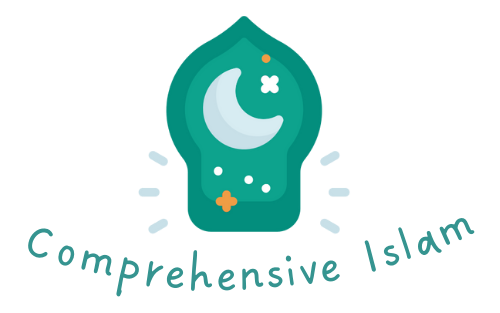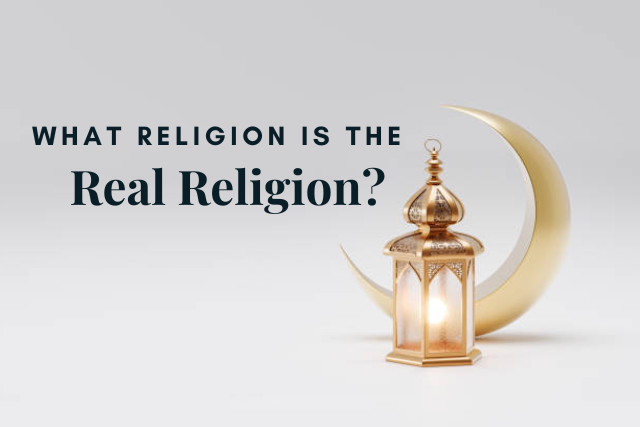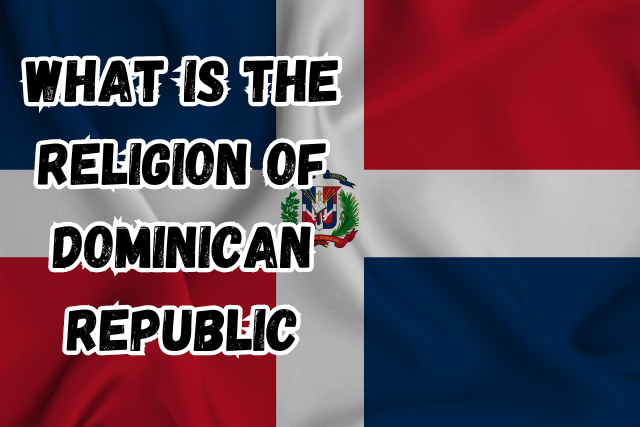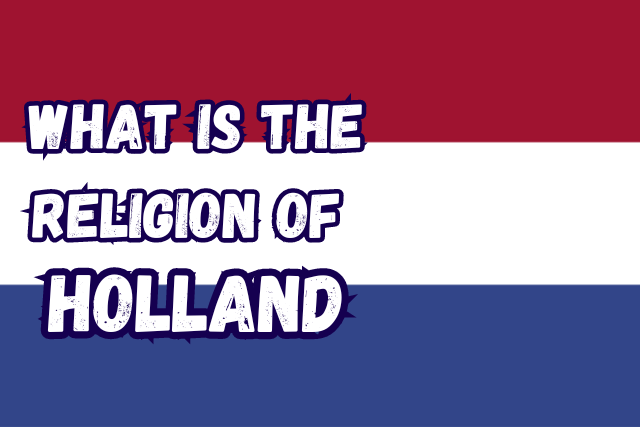What is the Religion of Egypt
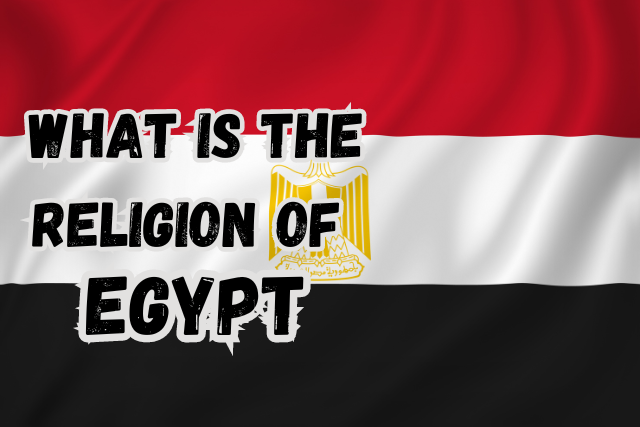
Welcome to the cradle of ancient civilization, Egypt. In Egypt, the echoes of history resonate through the pyramids and the Nile River. I’ll explore the diverse religious landscape that has shaped the cultural and spiritual identity of this North African nation.
Egypt’s religious narrative is an odyssey spanning millennia. From the mystical rituals and myths of the Pharaohs to the enduring influences of Islam and Coptic Christianity. The coexistence of these traditions paints a vibrant mosaic against the backdrop of iconic pyramids.
Let’s unravel the threads of faith that compose the spiritual mosaic of Egypt. Ready for an immersive exploration into the soul of Egypt’s religious identity? Let’s begin our journey.
What is the Religion of Egypt | Islam

Islam plays a central role in shaping both the spiritual and cultural landscape. The majority of Egyptians adhere to Islam. In addition, the country’s identity is deeply intertwined with the teachings of the Quran and the traditions of the Prophet Muhammad PBUH.
The Predominance of Islam
Islam is not just a religion in Egypt; it is a way of life that permeates every aspect of society. The overwhelming majority of Egyptians are Sunni Muslims, following the principles of Islam as outlined in the Quran. Mosques, with their iconic minarets, stand as symbols of faith, dotting the Egyptian landscape. Mosques also serve as both places of worship and community centers.
Religious Practices
Islamic practices are woven into the fabric of daily life. The call to prayer, heard five times a day, echoes through cities and villages, marking the rhythm of the day. Friday, the holy day in Islam, is a time for congregational prayers and communal gatherings.
Ramadan, the month of fasting, is observed with spiritual reflection, fasting from dawn to sunset, and communal iftar (breaking of the fast) celebrations.
Islamic Heritage and Architecture
Egypt boasts a rich heritage of Islamic architecture, with mosques that showcase exquisite design and craftsmanship. The Al-Azhar Mosque in Cairo stands as a testament to Egypt’s historical role in Islamic scholarship. It is one of the oldest universities in the world. The Mosque of Muhammad Ali within the Cairo Citadel is an architectural marvel, contributing to the city’s iconic skyline.
Moreover, Islamic art and calligraphy, inspired by Quranic verses, adorn mosques and historical sites across Egypt. The intricate designs and geometric patterns reflect a deep appreciation for the beauty and wisdom found in Islamic teachings.
Interconnectedness of Islam and Culture
Islam is not confined to religious practices; it is interwoven with Egyptian culture, influencing art, music, literature, and daily customs. The concept of hospitality, a cherished value in Islam, is reflected in the warmth and generosity extended to guests in Egyptian homes.
Christianity
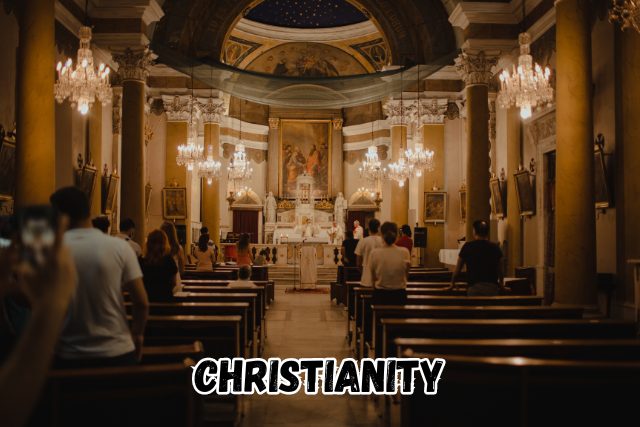
Christianity weaved through centuries of history and shaped the cultural and spiritual identity of the nation. From the ancient roots of Coptic Christianity to the vibrant practices of various Christian denominations. Egypt’s Christian heritage is a testament to the enduring presence of the faith.
Coptic Christianity
Coptic Christianity holds a unique place in Egypt’s religious landscape. Its roots trace back to the early centuries of the Common Era. The term “Coptic” is derived from the ancient Egyptian language. It highlights the deep connection between the faith and the country’s historical heritage.
The Coptic Orthodox Church
The Coptic Orthodox Church, led by the Pope of Alexandria, is the largest Christian denomination in Egypt. Known for its rich liturgical traditions, the church follows the Coptic calendar and celebrates ancient rituals that have been preserved for generations.
Monasteries and Churches
Egypt is home to numerous Coptic monasteries and churches, some of which date back to the early centuries of Christianity. These sacred sites stand as testaments to the endurance of the Christian faith in the face of historical challenges.
Christian Communities
In addition to Coptic Orthodoxy, Egypt is home to various Christian denominations. These include Catholic, Protestant, and Anglican communities. Each denomination contributes to the vibrant spectrum of Christian worship practices and theological perspectives.
Christian Traditions
Christian celebrations, such as Christmas and Easter, are observed with fervor in Egypt. These Christian festivals are marked by vibrant liturgical ceremonies, festive decorations, and community gatherings.
While Egypt is predominantly Muslim, there is a longstanding tradition of religious tolerance. Christians and Muslims often live side by side, sharing cultural spaces and engaging in interfaith dialogue. The recognition of religious diversity contributes to the pluralistic fabric of Egyptian society.
Indigenous Beliefs

Egypt’s cultural and religious heritage extends to the echoes of ancient indigenous beliefs. While these ancient practices may not be as prominent today, traces of indigenous spirituality persist. They contribute to the country’s rich tapestry of faith and tradition.
Ancient Egyptian Religion
The roots of indigenous beliefs in Egypt lie in the ancient Egyptian religion. It’s a complex system of rituals, myths, and deities that guided the lives of the people for thousands of years. The ancient Egyptians worshiped a multitude of gods and goddesses, each associated with specific aspects of life, nature, and the afterlife.
Polytheism and Mythology
Polytheism was a central feature of ancient Egyptian religion, with gods and goddesses like Ra, Osiris, Isis, and Hathor playing significant roles. Myths and stories depicted the creation of the world, the journey of the soul through the afterlife, and the cyclical nature of life and death.
Temples and Rituals
Temples dedicated to various deities were constructed throughout Ancient Egypt. These temples serve as sacred spaces for religious ceremonies and rituals. Priests and priestesses conducted elaborate ceremonies to honor the gods, seeking their favor and protection for the kingdom.
Traces in Modern Practices
While the ancient Egyptian religion has largely faded away, some elements of indigenous spirituality persist in modern practices and cultural traditions.
Folk Beliefs and Customs
Certain folk beliefs and customs in contemporary Egypt can be traced back to ancient indigenous practices. Superstitions, rituals related to agriculture, and beliefs in protective entities are examples of how some elements have persisted through the ages.
Celebrations and Festivals
Certain festivals and celebrations in modern Egypt may carry echoes of ancient rituals. For example, celebrations related to the Nile River or agricultural cycles may have roots in ancient practices that venerated natural forces.
Final Thoughts
Egypt’s religious identity is multifaceted, reflecting the ebb and flow of centuries of history. Egypt’s religious tapestry tells of Islam’s sacred rituals and the ancient echoes of pharaonic worship. It’s a living testament to enduring faith and cultural richness. In facing present challenges while honoring the past, Egypt finds strength and resilience in the harmonious coexistence of diverse religious traditions.
FAQs
What is the main religion in Egypt?
The main religions in Egypt are Islam and Christianity. Islam is the predominant religion, with the majority being Sunni Muslims.
Is there religious harmony in Egypt?
Generally, Egypt experiences religious harmony, with Muslims and Christians coexisting in communities.
What was the religion before Islam in Egypt?
Before Islam, the predominant religion in Egypt was ancient Egyptian polytheism.
What is the oldest religion?
The oldest known organized religion is Hinduism, dating back thousands of years.
How did Egypt fall to Islam?
Egypt became part of the Islamic Caliphate through the Arab-Islamic conquests in the 7th century.
